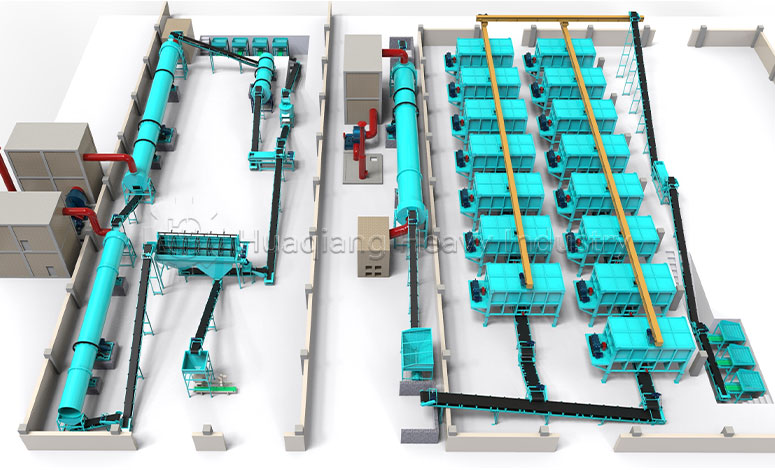Agricultural microbial agents, as functional additives, are organically integrated with fertilizer production lines, combining active microorganisms with fertilizer carriers through scientific formulation and special processes to form bio-fertilizers that improve soil and promote crop growth.
How Microbial Inoculants Enhance Fertilizer Efficiency
Agricultural microbial inoculants complement rather than replace chemical fertilizers through three key mechanisms:
- Nutrient conversion: Nitrogen-fixing bacteria convert 40-200kg/ha atmospheric N annually, while P-solubilizing microbes increase phosphate availability by 30-50%[1]
- Nutrient retention: Microbial metabolites form organo-mineral complexes that reduce leaching
- Root enhancement: Rhizosphere microbes expand root absorption area by 50-70%, boosting fertilizer efficacy[2]
FAO data shows: Combined use of microbial inoculants with fertilizers can reduce chemical inputs by 25-40% while maintaining yields and lowering environmental risks[3].
Innovative Applications in Fertilizer Production
The modern fertilizer industry has developed various microbe-enhanced products:
- Bio-coated fertilizers: Urea granules coated with nitrogen-fixing bacteria for dual slow-release and biological N fixation
- Composite microbial fertilizers: Containing ≥20 million CFU/g viable bacteria plus N-P-K and micronutrients
- Organic-inorganic-bio ternary fertilizers: Combining the advantages of organic matter, chemical nutrients and functional microbes
The global microbial fertilizer market reached $2.87 billion in 2023 with 12.4% CAGR, reflecting market acceptance[4].
Critical Roles in Fertilizer Processing
Microbial inoculants play central roles in organic fertilizer production:
- Rapid composting: Thermophilic microbes reduce processing time from 60 to 20-30 days
- Deodorization: Specialized microbes degrade NH₃, H₂S etc., reducing nitrogen loss
- Heavy metal passivation: Microbial metabolites immobilize Cd, Pb etc., decreasing bioavailability by 30-60%[5]
Advanced organic fertilizer plants adopt “pretreatment+composite inoculants+smart control” systems to meet organic farming standards.
Agricultural microbial agents are closely related to fertilizer production lines. Microbial agents can be directly blended into organic fertilizer production line or compound fertilizer production line as functional additives, combining with fertilizer carriers through specific processes to form bio-organic fertilizers. Alternatively, they can be coated onto granular fertilizers using post-production coating technology. The production line requires specialized equipment such as precise dosing systems and low-temperature mixing devices to ensure microbial viability. The use of microbial agents enhances the functionality of traditional fertilizers, promotes soil improvement and crop nutrient uptake, creating a synergistic “fertilizer carrier + active microbial community” system.




